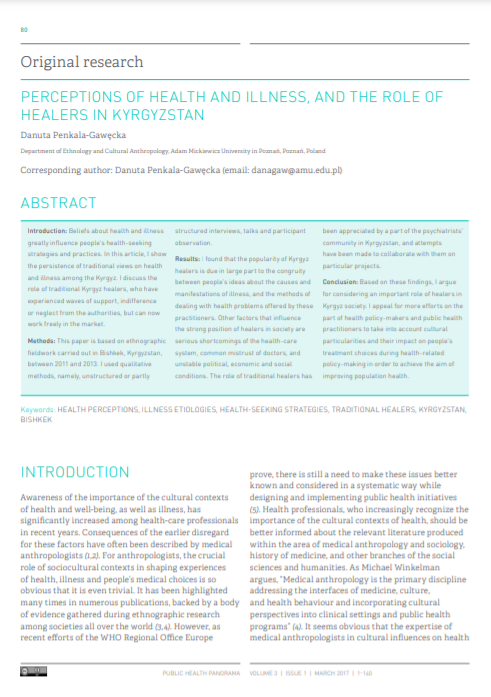
-
Source
Perceptions of health and illness, and the role of healers in Kyrgyzstan
Introduction:
Beliefs about health and illness greatly influence people’s health-seeking strategies and practices. In this article, I show the persistence of traditional views on health and illness among the Kyrgyz. I discuss the role of traditional Kyrgyz healers, who have experienced waves of support, indifference or neglect from the authorities, but can now work freely in the market.
Methods:
This paper is based on ethnographic fieldwork carried out in Bishkek, Kyrgyzstan, between 2011 and 2013. I used qualitative methods, namely, unstructured or partly structured interviews, talks and participant observation.
Results:
I found that the popularity of Kyrgyz healers is due in large part to the congruity between people’s ideas about the causes and manifestations of illness, and the methods of dealing with health problems offered by these practitioners. Other factors that influence the strong position of healers in society are serious shortcomings of the health-care system, common mistrust of doctors, and unstable political, economic and social conditions. The role of traditional healers has been appreciated by a part of the psychiatrists’ community in Kyrgyzstan, and attempts have been made to collaborate with them on particular projects.
Conclusion:
Based on these findings, I argue for considering an important role of healers in Kyrgyz society. I appeal for more efforts on the part of health policy-makers and public health practitioners to take into account cultural particularities and their impact on people’s treatment choices during health-related policy-making in order to achieve the aim of improving population health.




